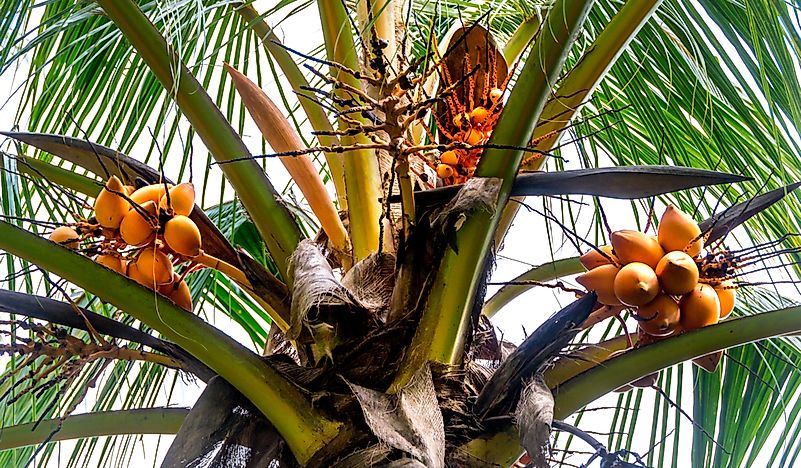

"This is not a commercial venture," said Mr. Deamer's project, which he sees as an extension of his commitment to the promotion of social and economic development - a commitment that stems from his practice of the Bahá'í Faith. Helping the rural population is, in fact, a main goal of Mr. So the possibility of using coconut oil as a fuel has the potential to really help the rural people." "Here, for example, the copra industry is having major problems at the moment and the government is shoring up the price and it is costing a fortune. "Coconuts are a huge commodity around the world," added Mr. "But people's interest has shot up since he started running a few cars on it. "He's been talking about this for a few years," said Marc Neil-Jones, publisher and managing director of Vanuatu Trading Post and Pacific Weekly Review. Deamer - and of his work at promoting coconut fuel. Indeed, it seems hard to find anyone of prominence in this small port city who doesn't know of Mr.

Deamer, with the gung-ho enthusiasm that has made him the driving force in winning wide acceptance for coconut oil fuels here. "One way or the other, we are going ahead with this," said Mr. Now, he and another local coconut fuel producer are working with the Government to change the excise tax and/or to explore alternatives, such as mixing coconut oil with alcohol or converting more vehicles to run on the pure stuff. Deamer himself continues to operate about a dozen vehicles on a pure coconut oil fuel, which is not subject to the new excise tax on petroleum mixtures.
ECONOMICS COCONUTS CAPITAL ISLAND DRIVERS
A recent change in Government tax laws has had the unintended consequence of temporarily raising the price of coconut oil/diesel mixtures - but many mini-bus drivers are still using the fuel, even if they have to mix it themselves. Late last year, some 200 mini-buses here were using a coconut oil/diesel mix on a daily basis, proving the concept. The discovery has huge potential for island nations like Vanuatu where the cost of imported oil is a heavy burden on the economy. Deamer has succeeded in proving that automotive diesel engines, with very little modification, can run safely on coconut oil. In what could prove to be a boon for both the environment and cash-strapped South Pacific islands, Mr. Among the other advantages: it doesn't make black smoke, it is less costly (at least in the South Pacific), it has the potential to stimulate employment among local coconut growers, and, perhaps most importantly for the world at large, it is an environmentally friendly fuel.Īnd, by the way, cars burning it can be fun to drive. Deamer is an extended lesson in the benefits of coconut oil over petroleum. "Normally, I'd have to shift down into first here, but with coconut oil, I can keep it in second gear." Deamer, a 52-year-old Australian-born motor mechanic. "Coconut oil is a bit more torquey, because it burns slower," said Mr.

With nary a sputter or a cough, the vehicle - modified to run on coconut oil instead of diesel fuel - took the incline in stride. PORT VILA, Vanuatu - Rounding a corner and heading up a steep hill outside the capital city of this lush South Pacific island nation, Tony Deamer stomped on the gas pedal of his Range Rover - but didn't downshift. The result is an environmentally friendly fuel that might also help the local economy.

Entrepreneur Tony Deamer shows that pure coconut oil can be used as an alternative to petroleum in automotive diesel engines.


 0 kommentar(er)
0 kommentar(er)
